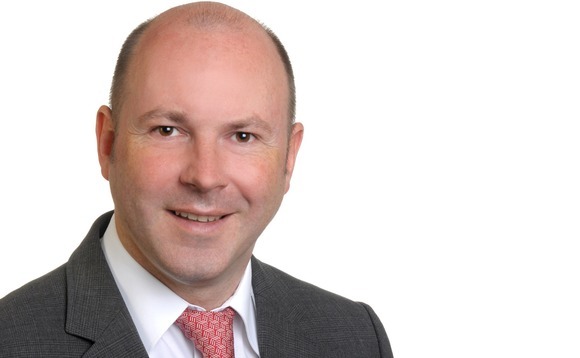
In Profile: Ufenau Capital Partners

Ralf Flore of recently rebranded Ufenau Capital Partners – formerly known as Constellation Capital – speaks to Katharina Semke about the GP’s changing strategy, its focus on service companies, recruitment plans and more
To avoid being confused with other firms, Constellation Capital rebranded to Ufenau Capital Partners at the start of 2016, and has made deep changes to its investment strategy in recent years.
Indeed, when the firm started in 1992 it was a deal-by-deal club of a private investor group. However, in 2010, when current managing partners Ralf Flore and Dieter Scheiff joined the firm, the investment strategy moved to employ a private equity fund-based approach. "It is easier to scale our projects with a fund-based approach and the vehicles also helped us to get blue-chip institutional investors on board," says Flore. The financial crisis also played a role in the decision, since Flore and his colleagues - like many investors - found it more challenging to secure investors during that time. They realised that by managing a fund, they could continue their investment activity during an uncertain economic climate - unaffected by hesitant LPs.
The GP's first private equity fund was Constellation III, now called Ufenau III. Predecessor vehicles were a deal-by-deal pledge fund and a mandate by a British finance investor that Flore brought with him when joining the firm. Ufenau III closed on €25m in December 2011 after less than three months on the road and received commitments from previous investors, as well as new private and institutional ones. The fund was invested in three companies and, according to Ufenau, earned 3.5x money with an IRR of 60% within three years. Ufenau IV followed in December 2014, closing on its hard-cap of €120m.
With the strategic reorientation to private equity funds in 2010, Ufenau not only stopped deploying expansion and venture capital to focus on leveraged buyouts, but the GP also decided to invest in smaller businesses - those with a €100-150m turnover, and also gave itself a sector focus: services. "We decided to solely focus on service companies within business services, education and lifestyle, financial services and healthcare. We don't invest in manufacturing businesses," says Flore.
This specialisation came about due to the partners' previous experience. Scheiff was CEO of staffing companies DIS and Addecco before joining Ufenau. Flore gained experience with investing in service companies with his previous employer: "We are both risk averse. For that reason we wanted scalable business models providing a reasonable margin of safety that also work during a crisis, meaning companies that we can upscale if they grow and downscale if they are not going so well. This system works well in the service sector."
Another way Ufenau hopes to differentiate itself from its competitors is through its buy-and-build strategy, says Flore: "In the past 12 months we made eight add-on acquisitions for our five platforms." He recognised that management teams can struggle with implementing a buy-and-build strategy themselves, and because of this are more likely to turn to private equity for support: "They often ask to be put in touch with the CEOs of former or current portfolio companies, who explain to them how we supported their company's growth. We believe these conversations are the best advertisement for us."
Many of Ufenau's former private investors became LPs in its buyout funds. The GP integrates them into a system that resembles a network of operating partners, but calls them industry partners. "We often take them with us to meetings with potential portfolio companies. This way they can speak face-to-face. The industry partner might have expanded to the US in the past or enlarged a company's product range and expresses first-hand experience," Flore explains.
Unlike larger private equity firms, Ufenau does not pay its industry partners - except when they join a company's board or help sourcing a deal. Of its past five platform investments, the GP sourced four directly, without an auction process. Flore believes it is easier for management teams of potential portfolio companies to avoid speaking to several interested investors. He relies on Ufenau's reputation to get them to agree to an exclusive proprietary deal.
Home-grown talents
Flore does not see a talent-crisis in private equity, where many complain it is difficult to find good staff. Instead, Ufenau is proactive in fostering its own talent. The GP hired two analysts in 2014 and one in 2015.
"We bring people into the firm at an early stage. They usually intern with us after their bachelor degree and then, if both sides like working together, they join us as analysts after finishing their university studies," says Flore. He believes that being a small firm - nine people altogether - is an advantage for Ufenau: "With us, people can become associate after three years and then later become partner. This is possible in a small team like ours. With bigger firms, they are just one among many. More people realise this and so we can't complain about a lack of applications."
The managing partners
Ralf Flore
Ralf Flore started his career in 2000 as an analyst at Capvis Equity Partners. In 2002, he became an investment manager at Swiss Life Private Equity Partners, where he stayed until 2004. The next step in his career was as investment director at Go Equity. In 2006, he became CEO of Heliad Equity Partners, before joining Ufenau in 2010.
Dieter Scheiff
Dieter Scheiff's career begun in 1979 at 3M Germany, latterly as department head. Until 2001, he was vice president of the European business of pharmaceutical company Johnson & Johnson Cordis, where he led the German business as CEO. Scheiff then became CEO of staffing company DIS AG until 2006. DIS was bought by Adecco in 2006, of which he also became CEO. Scheiff joined Ufenau in 2010.
Recent platform investments
Roth Brandschutz
Ufenau bought a majority stake in Swiss fire protection services provider Roth Brandschutz in a management buyout in September 2014 as part of a succession solution. Since Ufenau's acquisition, the company has bolted on two competitors in Switzerland, both in 2015. In September, it bought St Gallen-based Aebisol, a fire protection and technical insulation company. The next acquisition was in November, when Roth acquired Bulle-based ISSA, which operates in the same sector.
Intelligent Repair Solutions
Constellation acquired Rellingen-based car repair and service company Intelligent Repair Solutions (IRS) in 2014. Since then, the company has bolted on four competitors: Dent Wizard, which mainly serves large insurance companies; in August 2014, IRS acquired Kamp-Lintfort-based Douteil Smart Repair; in 2015, IRS bolted on MS Car Care; and its most recent acquisition was Frank Gerardy, a provider for car body repairs based in Koblenz.
Ufenau Capital Partner's Ralf Flore will be speaking at this year's unquote" German Private Equity Forum, which takes place on 22 June in Munich. For more information on speakers, agenda and to book your place, click here.
Latest News
Stonehage Fleming raises USD 130m for largest fund to date, eyes 2024 programme
Sponsor acquired the public software group in July 2017 via the same-year vintage Partners Group Global Value 2017
Stonehage Fleming raises USD 130m for largest fund to date, eyes 2024 programme
Czech Republic-headquartered family office is targeting DACH and CEE region deals
Stonehage Fleming raises USD 130m for largest fund to date, eyes 2024 programme
Ex-Rocket Internet leader Bettina Curtze joins Swiss VC firm as partner and CFO
Stonehage Fleming raises USD 130m for largest fund to date, eyes 2024 programme
Estonia-registered VC could bolster LP base with fresh capital from funds-of-funds or pension funds









